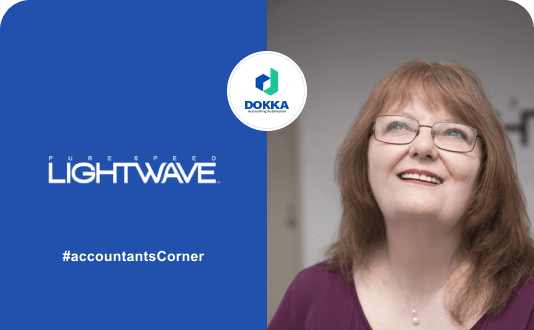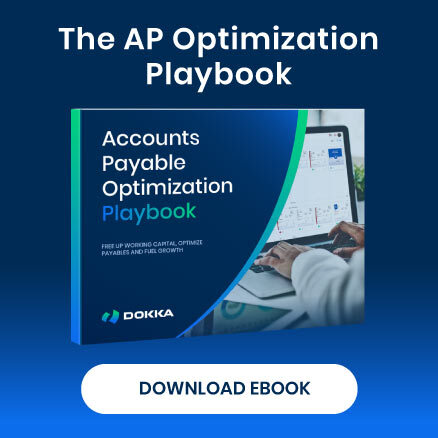Lisa Cervantez, from PureSpeed Lightwave spent some time with me recently to discuss how an internal finance team in a medium size business operates. It was fascinating to hear how they chose SAGE 300 instead of Quickbooks Desktop as their accounting software, and also the processes and automation within their finance team.
From the PureSpeed Lightwave website:
PS LIGHTWAVE is the consultative data connectivity provider for public and private entities in the Greater Houston area. Through our high-quality infrastructure, innovative technology and superior level of support, we deliver the best of connectivity, reliability, scalability and redundancy.
Here is an edited version of the discussion Lisa & myself had over Zoom. The reason they chose Sage 300 instead of Quickbooks Desktop is around the halfway mark of the discussion.
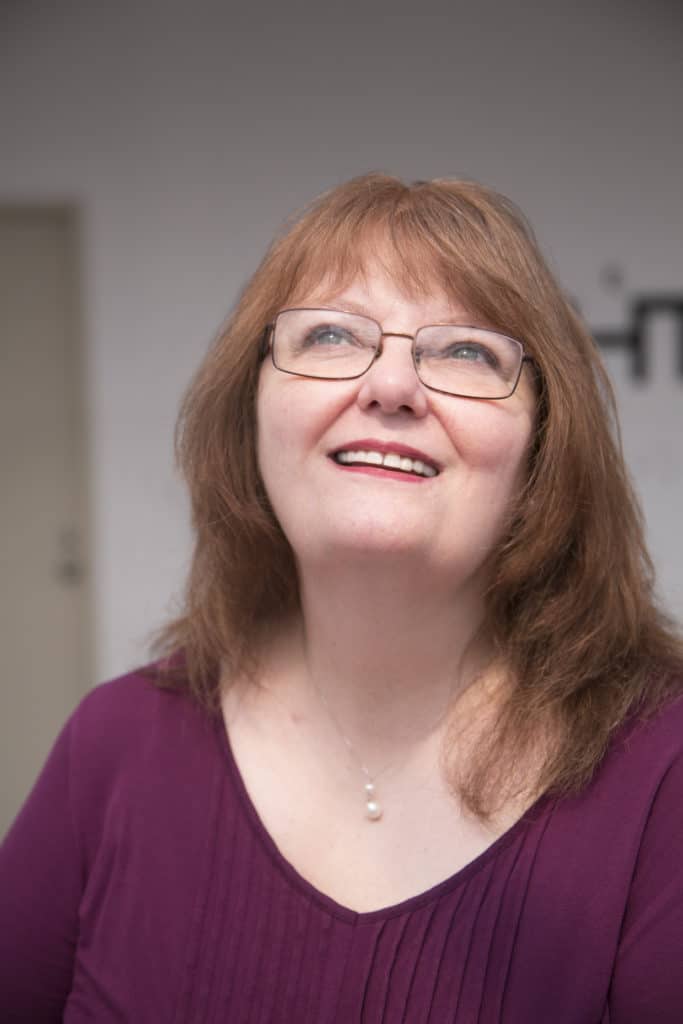
Bookkeeping Accounting Courses
Eric: Lisa, nice to meet you. Lets start off by hearing a bit of your background. How did you end up being in the position you are?
Lisa: I ended up in the accounting realm by accident. I started off as a receptionist, but I had an affinity for numbers, so I learned accounting as I went. I had some really good mentors that brought me up in the business. I went up through the ranks. The last actual accounting position I had was as a staff accountant before I moved into the IT realm. Now I’m a finance systems manager, which sounds really fancy, but it just means I support all of the finance team. And I still do the accounting, as I’ve been here for 13 years. I’m one of the team members that have been here the longest.
E: So you’ve organically grown through the ranks. Do you have formal training in accounting or bookkeeping. Have you done accounting or bookkeeping courses, to get degrees or diplomas?
L: I’ve done courses, but not anything formal. I went through the “Small Business Administration”. They had a course called something like “Bookkeeping for Small business training”. A 1 day bookkeeping course. It was really helpful. And I’ve done a couple of IRS courses. I went to a small business school that taught me the basics of computers, as I was completely computer illiterate when I first started as everything was still being done by hand.
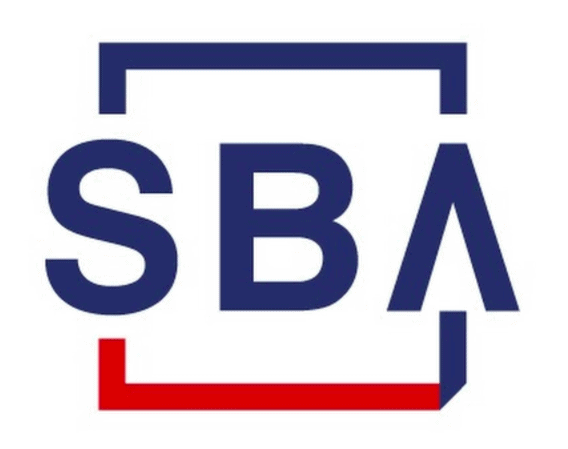
Differences between a bookkeeper and a CPA
E: Can you explain the difference in the United States between a CPA, someone who specializes on the Tax side, someone who does bookkeeping. It appear that there is different skills, different legalities, different requirements for them?
L: Right, there are. You start off as a bookkeeper. A bookkeeper can do all of your general bookkeeping entries, and take care of all bookkeeping issues a small business would need. A CPA is required when you need a degreed person, usually they have a masters degree, they’ve passed the CPA exam. It allows a CPA to certify certain things. It’s required for the larger companies if you want to be a controller or a CFO, although a CFO can also organically grow. For the bigger firms, they’ll want a CPA, as they’ll certify certain things for you. Now a tax accountant just specializes in Tax. I know CPAs that won’t touch taxes. It depends on where your affinity lies.
E: So in a business like yours (and we’ll get to what your business does in a second), if you have bookkeepers and you don’t have a CPA, does that mean you have to outsource the CPA role? How does it get handled if you don’t have the required skills internally?
L: In our business, our controller is not a CPA. She’s certainly smart enough. She handles pretty much everything. She’s very good at what she does. We do have an outside tax firm that handles the auditing of our records at year end, & they also do our tax preparation. So we have audited financials by this firm in addition to the taxes.
E: Right. So the controllers internally don’t have to be CPAs?
L: Right. Controllers don’t have to be CPA’s. It’s recommended for larger companies, but the company I’m representing, PS Lightwave, they’re a medium size business, so they’re not at the position where they would need to have an internal CPA. The person who had the position before, my current boss, she had a CPA, but our current controller is leaps and bounds ahead without a form CPA – she’s extremely smart.

PS Lightwave is the largest privately owned fiber network business in Houston
E: Can you tell us about your current business. What do they do? What is their specialty? How many people? Which areas do they focus in?
L: I’ve been here for 13 years. PS Lightwave is a privately owned telecommunications company, a women owned business here in Houston. She owns the largest privately owned fiber network business in Houston. It’s really interesting work. I didn’t know anything about Internet and Internet Communications before I went to work for her. I have to say, I learned quite a bit, although I still can’t figure out how to get my cable to work when it’s broken. It’s been interesting to watch the challenges expanding. As a company, we are an offshoot from an older, larger company called Phonoscope enterprises. Phonoscope itself has been around for 50 odd years. It’s also currently a telecom. It’s owned by our owner, Rhonda Cook’s father, and Lee Cook is still around, he’s 90 years old, he still goes into the business everyday. He’s great. He still has his business across the street. He does the same thing, so technically we’re competitors, but we’re not.
E: When you say “Women owned business”, is your whole management team also women.
L: No. Rhonda Cook owns the business. There’s plenty of women in the upper management but she qualifies as a women owned business. Its something that she’s really proud of. It’s all of her money at risk. It’s a pretty large business. She does in excess of $20M per year. We run around 90 people in payroll, so we have everything from the NOC (the people who answer the phones 24×7) to the people out in the field. The people who climb the poles and who install the fiber in the ground. And everybody in between.
Rhonda Cook owns the business. There’s plenty of women in the upper management but she qualifies as a women owned business. Its something that she’s really proud of.
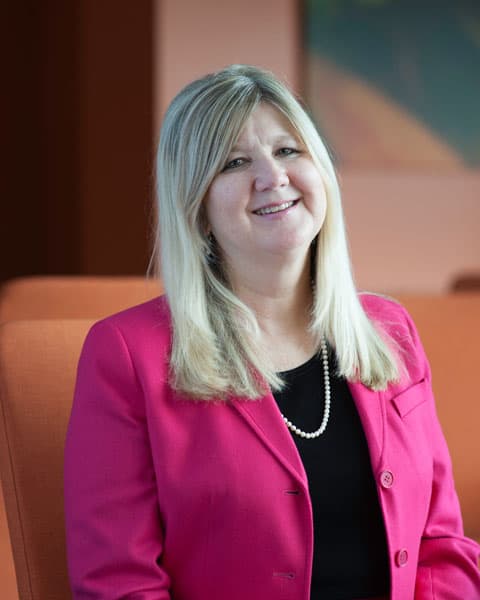
Internal Finance Team Skillset
E: And specifically your finance team, is it yourself and your boss?
L: There are 4 other people in our finance team. There’s an accounts receivable, a specialist in accounts payable, and an accounts manager. She’s currently on maternity leave. We miss her dearly. She has another month with her baby. And we have a young man that takes care of our job costing.
E: When you’re talking about the skillset in your finance department, with the skills you’ve mentioned, do you feel that you’re covering all the bases, or is there anything missing?
L: We feel like we’re covering all the bases right now. Certainly we’re all very busy. I don’t think anything really slips through.
Understanding the Accounting Stack
E: Lets talk about your accounting stack at the moment. What accounting software are you using? Are you using any 3rd party apps? Bill.com or anything else? What does the finance process look like?
L: The accounting software we’re using is SAGE 300. We’ve got most of the modules except for sales. We use job costing and the asset manager. Our close looks like this. Just before the end of the month, we send out notices to everyone. The person doing the job costing, he’ll start his close process by getting everyone’s input, and actually, he does his part of the close before the end of the month. I convinced everyone that we need to do that in order to get it done. Right after the 1st of the month, we start our entries. We’ve got recurring entries that will kick off automatically obviously. I’ll do the payroll entries. We have an outside payroll company. And then we have reconciliations and a few other entries that are a little more convolute like our insurance. We have prepaid insurance we calculate every month. And also prepaid rent that we calculate each month. Usually we try to have everything done by the 7th.
E: And the collection of the documentation from the different people in the company, more on the expense and Accounts Payable sides. Is it still paper documentation, or is all electronic documentation? What is the process in terms of collecting the documentation, assembling it, managing it?
L: We just implemented an internal electronic invoicing system.
E: Is that a module on SAGE 300 or through Bill.com or is that through a 3rd party software provider? What are you using for that?
L: It’s either a Microsoft or Sharepoint product. One of our IT guys worked with our AP person to get it all together, and they got it up and running a few months ago. We send out electronic copies of the invoices to the people and Sharepoint shoots them an email to let them know they have a document to approve. Then it gets sent back and the whole thing gets uploaded into SAGE. I’m not sure what parts in SAGE and what parts in Sharepoint but they are tied.
The Overlap between Finance & IT
E: Earlier you mentioned that you are a combination of Finance and IT. Can you speak about how you sit on both sides of it and where the responsibility begins and ends?
L: That’s difficult as we go back and forth. There are two of us that work on both sides. I work more on the Accounting side, I have more Accounting duties and less IT duties, which is commiserate with my abilities. He has more IT duties and less Accounting as he will tell you right off that he’s not an Accountant.
However, he does understand Accounting, and we are both very well versed in SAGE. He knows a lot more about the SAGE backend whereas I know a lot more about the SAGE frontend. We’ll switch off as is needed. If he gets to a spot in SAGE where he can’t figure out what’s going on, and it’s the SAGE frontend, he’ll send it to me. If I get to a spot and I can’t fix something, and I see it’s a SAGE backend problem, I’ll send it to him.
Bookkeeping & Accounting a decade back
E: Thirteen years is a long time. What changes have you seen over the last thirteen years in terms of the accounting and bookkeeping process, the accounting software. I’m assuming thirteen years ago, it was still all paper, paper documentation, with desktop accounting software. How have you seen it changing over the last decade?
L: Wow! Yeah, thirteen years ago, everything was on paper. We still had a dot matrix printer for some of it. We were using Nas90 software, which later became SAGE 100, which is what made it easier to do the transition to SAGE 300 when we needed to upgrade. Thirteen years ago, the company I work for, PS Lightwave, did not exist yet. The daughter was still learning from her father. She hadn’t developed her company yet. We were all still together under one roof basically.
It’s funny, I look at my paycheck and that’s changed quite a lot during that time too. It really was an interesting thirteen years, I have to admit.
Quickbooks Desktop versus SAGE 300
E: I appreciate the business you are in is a medium to large size business in terms of US classification, and that Intuit and Quickbooks online are mainly focused at the SMB market. But there’s still a lot of large companies using Quickbooks desktop or some of the more enterprise Quickbooks, or Intuit, products. I’m interested in trying to understand why companies are using one accounting product over another. Your company for example, you were using SAGE 100, you’ve now moved to SAGE 300. Why are you not using the Intuit stable. What makes one go one way or another.
L: That’s a cool question because we did this upgrade to SAGE 300 in 2016, which is about 4 years ago, and we spent, probably, 6 months or so trying to decide what software to go to, and we looked at several. We looked at Oracle, we looked at Intacct, we looked at Great Plains, the Microsoft Accounting Software platform. I was going to call it Great Lakes, which is the company that took care of our wind cable! Not to mention all the lakes!! Anyway, it was interesting to see all of the differences, and what they focused on. But you can tell when people are developing the software, they have a specific business in mind. And I guess you have to. When you develop a business and you develop a focus, you have to have a specific client in mind. And so we had to find someone that had us in mind. Because it was hard to find a computer software that would do the Accounts Receivable well, and the General Ledger well, but also do inventory well, and do job costing.
And those pieces were all really important to us. And we almost went with Intacct but it wouldn’t do one of them, it wouldn’t do job costing. And so I was really unhappy about that because I loved everything that Intacct did. I wouldn’t have gone with Quickbooks because I had had a bad experience with Quickbooks years earlier. Quickbooks programming is a little loose, and it lets you do stuff that you shouldn’t be able to. And as a result I had an inexperience accounting manager come in, and all he did was he made some changes to the names of the accounts, and it really shouldn’t make a big difference, but it totally messed up the accounts for several years. It was terrible.
Editors Note: Why did the PS Lightwave team choose Sage 300 versus Quickbooks Desktop? They created a process to analyse which accounting software solution best suited their needs.
Problems with an old version of Quickbooks Desktop
E: Was that using Quickbooks Online or Quickbooks desktop or which version of Quickbooks?
L: I believe it was Quickbooks Desktop, and it was an old version I’m sure. But it was really difficult to get passed. That was just our experience. It’s possible that that would never happen with someone else who understood that you just can’t go in there and change names on an account. And maybe it was something that was done in the setup. I have no idea. But it was really interesting. And plus, Quickbooks, just wasn’t setup for the robust way we do business. We’re just kinda bulky. We’re complex.
We’re just kinda bulky. We’re complex.
Accounting Software SWAT analysis
E: So to take this a step forward, because it’s interesting, you said you spent a couple of weeks or months analyzing the different options. Was that a formal SWAT analysis you did, or how did you go about doing that?
L: It wasn’t a very formal analysis. The only reason it took months is because it took several of us together to talk about things, and then choosing the different softwares we were going to analyze. And then bringing them in to talk to them. And then letting them come in, and give us their Shpiel. And a couple of them came in and did a formal presentation for us. It took several months to go through that. Part of the problem was also convincing upper management of the correct software what was most important. In our current model, the AR is done like a subscription process. We invoice our customers monthly. There aren’t a lot of the accounting software’s that are setup to do that.
Not even SAGE 300 is setup to do that. I mean you can set it up to do that but it’s not created for that model, its created for a Point of Sale model. So to make it do that you lose some of the really cool features that it could have done had we been a Point of Sale model. They were more interested in other software that did more of a subscription base, so they could get some of those neat ROI reports and stuff like that. So basically it was letting them come in and do their shpiel and then talking upper management into doing the software that was going to give the reports for all of the important job costing stuff. Get them passed all the pretty ROI reports.

SAGE 300 Wishlist
E: You mentioned one workaround you’re doing on SAGE now. Is there anything else you’d like SAGE 300 to do that it’s not currently doing?
I need SAGE to let me report on the optional tables I’ve created.
L: Probably! We’ve got several third party things going on here. I need SAGE to let me report on the optional tables I’ve created. And it appears that now I need to buy another third party add-on to make it do that. It also doesn’t do cash forecasting the way I want it to. So there’s another third party application that does that. There are always things.
E: When you talk about third party add-on options, will you need to do integration yourself, or is that all part of the SAGE marketplace and it’s click and buy and integration is relatively easy.
L: It’s not quite as easy as click and buy, but most of them are SAGE vetted vendors. Their API works directly into the SAGE 300 platform. It talks to it nicely. Usually it works pretty seamlessly. We’ll get our SAGE reseller to come out and do the installation and get it installed in the correct position to make it work right.
Tips for Remote Working during Corona
E: Lets end off by discussing remote working and Corona. How has your life changed in the last 2 weeks. From a business perspective any tips on working remote?
L: I realized that on one hand there are certain bits of paper that I really miss, on the other hand it’s probably easier than I thought to switch to working without those bits of paper. If we can just get everyone on the same page. I guess I miss the camaraderie of being with all my buddies at work, but I sure don’t miss that commute.
E: So your finance team is operating at the same level of efficiency that you were a couple weeks ago or has it changed?
L: I’m sure it’s changed a little bit. I know that the guy who does the job costing piece is struggling. It’s not working as well for him as for the rest of us. His computer setup isn’t as robust. It maybe is his connection, maybe his computer. But every morning it’s a struggle for him to get online, and once he does, he’s an hour or so behind the rest of us. So that ones been hard. I think the rest of us are okay. I think our AP person, she’s been working with scanned materials for awhile, so I think she’s doing okay. She stays online as long as she stays in the office. She’s one of those that does a certain amount of overtime. Our accounts receivable person has always worked some shifts at home and some shifts at work so it was simple for her to pick up everything she needed and go home and stay there. My boss, the controller, still sneaks into the office once in awhile. The building is still open.
Outsourced versus Internal Bookkeeping
E: My final question! Most conversations we’ve had have been with outsourced bookkeeping companies, or outsourced accounting companies. It’s really interesting speaking to a business like yourself where you have an internal finance team. When should a business outsource their bookkeeping and finance requirements, and when should they have their finance team internal?
L: Interesting. I worked for Compaq computers when they were purchased by HP and then outsourced their accounts payable department. I was in their accounts payable department at that point in time, and so I was outsourced with them. I would say that it depends entirely on the company. If it makes business sense to them, if it makes financial sense to them. At any point in time if they get large enough that it becomes a burden to keep the people around than it does to outsource everything, then it makes sense. Financially it makes sense. Once you get larger it is less expensive to outsource something because you’re not having all of that payroll and all of that overhead. But by doing that you lose a certain level of control over when you get your checks written, and frankly, your privacy. What gets paid. There’s give and take.
Once you get larger it is less expensive to outsource something because you’re not having all of that payroll and all of that overhead.
E: Thank you for giving me your time today Lisa. Be safe, and take care.
Do you have strong views on the Accounting & Bookkeeping industry?
This is a series that DOKKA is running where we explore the thoughts of Bookkeepers, Accountants, CFO’s & others involved in the Bookkeeping & Accounting space throughout the world.
See some of our previous discussions:
Mary McBlain from McBlain and Davis Accountants – Understanding the Bookkeeping & Accounting industry in the UK
Hossein Dadkhah from DataDrivenCIOs – Factors Accounting companies should consider when dealing with client data
Lisa Cervantez from PureSpeed Lightwave – Why an internal Finance Team chose SAGE 300 as their Accounting Software
Jeffrey Levine from Persofi – Bookkeeping differences between Israel versus the UK
Zane Orton from M-inent – Future of Bookkeeping
Akiva Brett from KB Tax – A South African Tax Practitioner
Julie DeLong from Backyard Bookkeeper – Part 1 – Choose between Quickbooks Online and Quickbooks Desktop
Julie DeLong from Backyard Bookkeeper – Part 2 – Advice from a Virtual Bookkeeping Company
Holly Dunn from Accountable Bean – SAGE versus Intuit
